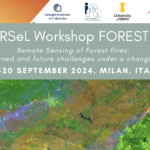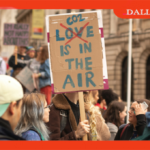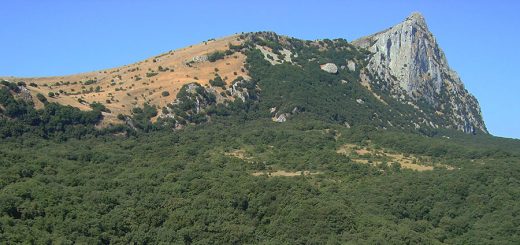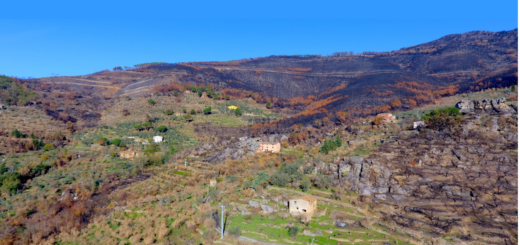COST Action FP1202 (MaP-FGR) – Second call for Short Term Scientific Mission
Segnalato da: Giovanni Giuseppe Vendramin, Fulvio Ducci
Second call for Short Term Scientific Mission
Deadline for submission is August, 16 2013
COST Action FP1202
“Strengthening conservation: a key issue for adaptation of marginal/ peripheral populations of forest trees to climate change in Europe (MaP-FGR)”
Map FGR COST Action
MaP FGR Action aims to bring together experts in forest genetic resources (FGR) to collect knowledge on FGR in Marginal and Peripheral (MaP) populations throughout Europe. The effects of climate change are likely to be stronger and more rapid in MaP populations than elsewhere. MaP forest populations are at the edges of species ranges where conditions are less suitable for survival. Studying adaptive processes in these populations is crucial and of mutual interest for European and non European countries for understanding the evolution of species and developing gene pool (FGR) conservation and management strategies and networks to cope with the global change. These populations are not only threatened by modern climate changes but also by other disturbances arising from human activities and they may prove invaluable for adapting the European forestry sector. For more information on the COST Action FP1202 MaP FGR see http://www.cost.eu/domains_actions/fps/Actions/FP1202.
COST MaP FGR – Short-Term Scientific Missions
As defined by COST guidelines, the aim of STSMs is to contribute to the scientific objectives of a COST Action. These Missions (Exchange Visits) are aimed at strengthening the existing networks by allowing scientists to go to an institution or laboratory in another COST country to foster collaboration, to learn a new technique or to take measurements using instruments and/or methods not available in their own institution/laboratory. They are particularly intended for Early Stage Researchers. STMSs aim at promoting scientific collaboration and exchanges between the institutions participating in the MaP FGR Action. STSMs in the context of MaP FGR Action are encouraged, paying particular attention to the following objectives:
- to collect, collate, analyze and synthesize information from past and ongoing projects related to genetic diversity and impacts of climate change;
- to record and list existing conservation efforts and status, in order to identify gaps and set conservation priorities;
- to analyze and raise awareness on the role of FGR in the adaptation of MaP populations;
- to perform meta-analysis of collected data to identify common trends on the dynamics of genetic diversity in relation to the adaptation to the effects of the global change.
Eligibility
The Applicant should normally be engaged in a program of research as a post graduate student or postdoctoral fellow or be employed in an institution of a COST Member State having signed the Memorandum of Understanding of the MaP FGR Action (http://www.cost.eu/domains_actions/fps/Actions/FP1202?parties). This institution should be actively participating in the COST Action.
For the period of the STSM neither the Management Committee of the MaP FGR Action nor the COST Office may be considered as the employer and grantees must make their own arrangements for all health, social, personal security and pension matters.
Duration
STSMs can vary from 1 week (5 working days) to 3 months (and up to 6 months for Early Stage Researchers – less than PhD + 8 years). The STSM’s granted in the current call must take place by October, 31 2013.
Financial support
The financial support is a contribution to the costs of a STSM and may not necessarily cover all the costs in each case. The grant should normally cover only travel and subsistence.
The financial contribution for a STSM will be a fixed grant based on the Applicant’s budget request and the evaluation of the application by the STSM assessment committee. An amount of EUR 60 to 90 for the daily allowance in particular for longer stays and EUR 300 for the travel is recommended. The total of a STSM shall normally not exceed EUR 2 500 (EUR 3 500 for Early Stage Researchers – see 3.4 in the attached Vademecum). Any exception needs special justification.
An advance payment may be made in exceptional circumstances, which will require additional special justification.
STSMs application and approval
Criteria for assessing STSM proposals
The following criteria will be used to assess applications:
- Applicant’s eligibility according to the requirements set out in Cost Vademecum (see Vademecum attached);
- Contribution of the proposed STSM to the goals of the MaP FGR Action (to be described in the applicant’s reasoning);
- Applicant’s involvement in MaP FGR Action;
- Respect of gender balance.
More detailed criteria may be established by the Management Committee with reference to each call for STSMs.
Application
The application process consists of:
1. Host institution agreement: the Applicant is responsible for obtaining the agreement of the host institution, before submitting his/her application.
2. On-line Registration: the Applicant must than use the on-line registration tool (https://eservices.cost.eu/stsm) to register his/her request.
3. Submission: the STSM Formal Application has to be downloaded and sent by the Applicant by e-mail as attachment to the future host institution of the STSM and to the STSM Coordinator, Valentina Garavaglia (valentina.garavaglia@fao.org), together with:
- Project: up to 2 pages describing the context and the scientific objectives of the visit and justifying the chosen duration;
- Budget requested: with details for the travel cost and stay expenses.
- Reasoning for contribution of the STSM to the goals of the Map FGR Action (including MaP FGR working group the project fits in).
- CV
- Written endorsement of the host institution
Applications shall be submitted according to the schedules stipulated by the Management Committee. Deadline for submission is August 16, 2013.
Assessment and approval
- Ms. Valentina Garavaglia collects the applications and arranges the evaluation of the STSM proposals by the STSM assessment committee (the Core Group [CG]: Chair, Vice Chair and WG leaders).
- The STSM assessment committee makes the scientific and budgetary assessment.
- The STSM proposals will be ranked on the basis of the criteria approved by the Management Committee and the additional criteria set out in the call for proposal, if any.
- The STSM proposals will be approved by the STSM assessment committee on the basis of
- this ranking.
- The STSMs Coordinator informs the Grant Holder about the decision.
After checking the application for the compatibility with the existing rules and procedures, the Grant Holder sends to the Applicant a Grant letter in which he/she is informed about:
- the approval of the STSM;
- the level of the financial grant given;
- The Applicant has to return this Grant letter, after accepting the grant with his/her signature.
- The decisions regarding STSM applications shall be reported to the next Management Committee meeting and recorded in the minutes of the meeting.
Reporting and payment
After completion of the STSM, the Grantee is required to submit to the host institution and the STSMs Coordinator a short scientific report on the visit, within four weeks after his/her stay.
This report needs to include:
- purpose of the STSM;
- description of the work carried out and main results obtained during the STSM;
- future collaboration with the host institution (if applicable);
- foreseen publications resulting or to result from the STSM (if applicable).
The scientific report is submitted to MC Chair approval. The STSM Coordinator informs the Grant Holder that the STSM has been successfully accomplished and that the grant can be paid.
Deadlines
All applications must be submitted by email to the STSM Coordinator Valentina Garavaglia (valentina.garavaglia@fao.org), by August 16, 2013.
Applicants will be informed about the application result by August 31, 2013.







